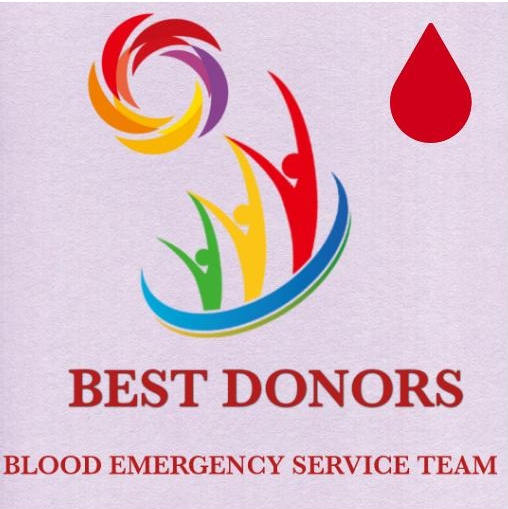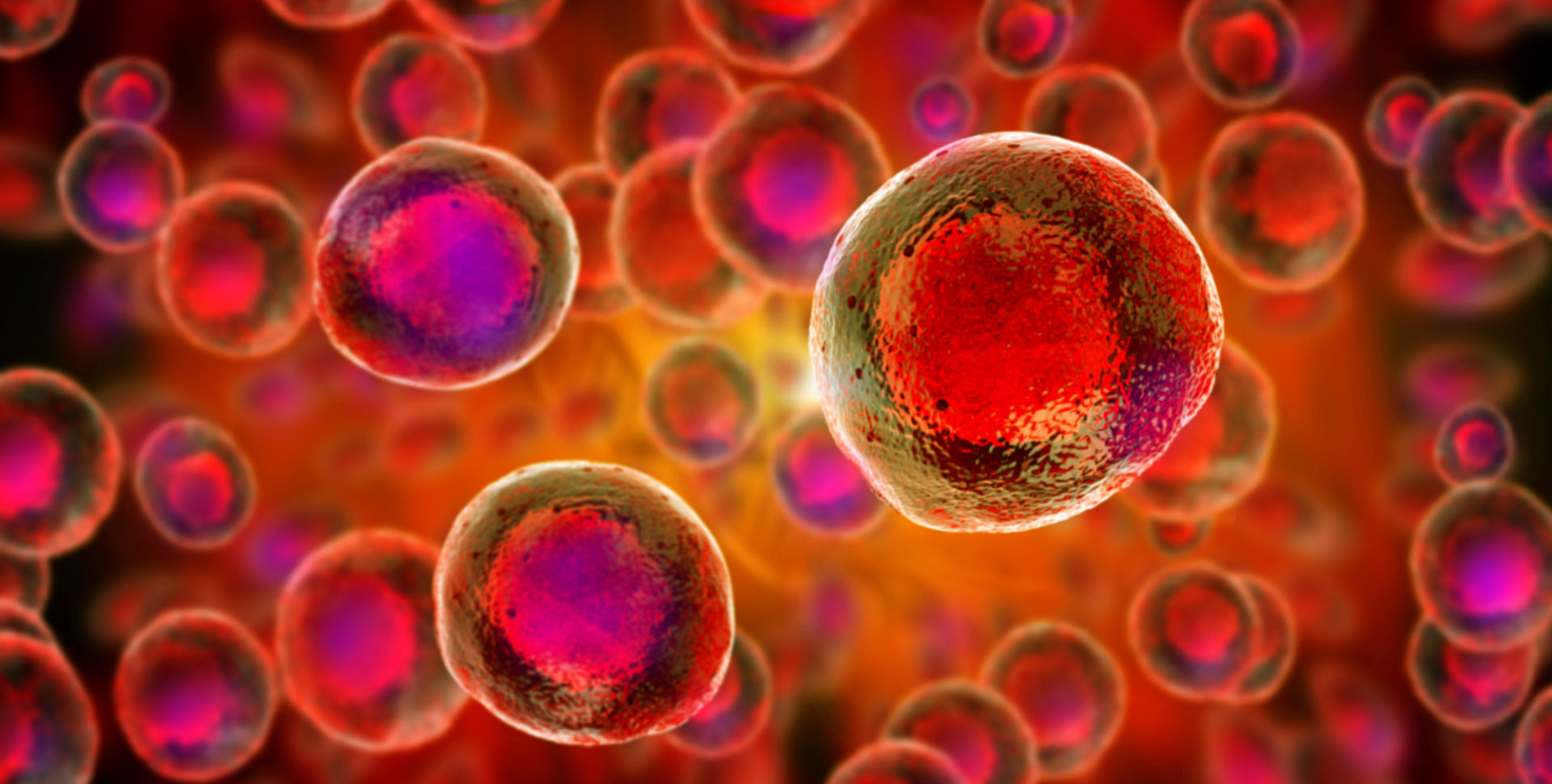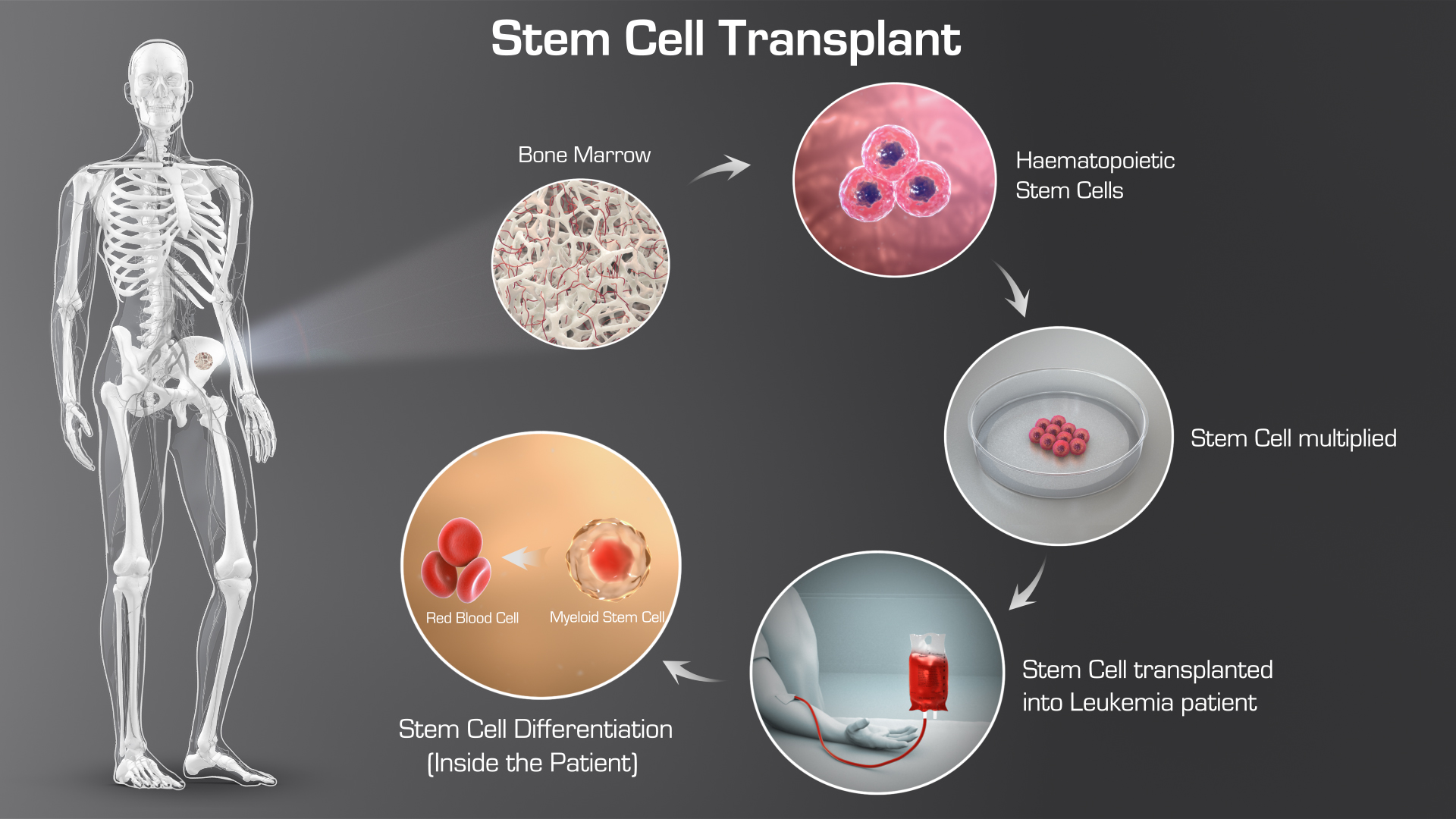There are four components in our blood.
Let us know about Stem Cells
What Are Stem Cells?
Stem cells are exceptional cells with the special capacity to change into different specialized cell sorts. They play a crucial role in tissue repair, growth, and regeneration. There are different types of stem cells, including embryonic, adult, and induced pluripotent stem cells.
Why Is Stem Cell Donation Important?
Stem cell transplantation is a powerful treatment for various life-threatening conditions, such as leukemia, lymphoma, and certain genetic disorders. When a patient’s own stem cells are insufficient or compromised, they rely on donated stem cells to restore their health.
Types of Stem Cell Donation:
Blood Stem Cell Donation (Peripheral Blood Stem Cell Donation):
- Process: Donors receive injections of a growth factor that stimulates stem cell production. Blood is then drawn, and the stem cells are separated.
- Eligibility: Anyone can volunteer, but health requirements must be met.
- Benefits: Minimally invasive, similar to donating blood.
Bone Marrow Donation:
- Process: Donors undergo a bone marrow harvest, where stem cells are extracted from the pelvic bones using hollow needles.
- Eligibility: Similar to blood stem cell donation.
- Benefits: Directly provides bone marrow stem cells.
Stem cell donation has several important uses in medical treatments:
Hematopoietic Stem Cell Transplants (HSCT):
- Purpose: In HSCT, stem cells replace cells damaged by chemotherapy or disease. They can also serve as a way for the donor’s immune system to fight certain types of cancer and blood-related diseases.
- Conditions Treated: Leukemia, lymphoma, multiple myeloma, myelodysplastic syndromes, neuroblastoma, Ewing sarcoma, germ cell tumors, and testicular cancer.
Autoimmune Diseases:
- Treatment: Stem cell transplantation can be used to treat autoimmune diseases such as multiple sclerosis, systemic sclerosis, and Crohn’s disease.
- Mechanism: The new immune system provided by donor stem cells may offer protection against underlying autoimmune conditions.
Bone Marrow Disorders:
- Treatment: Stem cell transplants are effective for treating bone marrow disorders like aplastic anemia and myelofibrosis.
- Outcome: Donated stem cells help replenish healthy bone marrow.
Genetic Disorders:
- Application: Stem cell therapy holds promise for treating genetic disorders by replacing faulty cells with healthy ones.
- Examples: Sickle cell anemia, thalassemia, and other inherited conditions.
Tissue Regeneration and Repair:
- Research: Scientists explore stem cells’ potential to repair damaged tissues, including heart muscle, nerves, and cartilage.
- Future Applications: Stem cell-based therapies for heart disease, spinal cord injuries, and osteoarthritis.
Eligibility:
If you’re considering registering as a potential stem cell donor, here are the eligibility criteria:
- Age: You can sign up if you are between 18 to 50 years old in India.
- Health: You should be in good general health and free of infectious diseases such as HIV/AIDS, hepatitis B, and C.
- Medical History: You must be free of health issues, including cancer, blood diseases, insulin-dependent diabetes, and certain heart conditions.
- Willingness: Be willing to be a donor for any patient in need.
The Donation Process:
- Donor Registration: Individuals interested in donating stem cells register with national or international registries.
- Matching: When a patient needs a transplant, the registry searches for a compatible donor based on tissue type.
- Preparation: Donors receive necessary medications to boost stem cell production.
- Collection: Stem cells are collected either from blood or bone marrow.
- Transplant: The beneficiary gets the given stem cells, which supplant harmed or ailing cells.
Risks and Considerations:
- Discomfort: Donors may experience mild discomfort during the collection process.
- Rare Complications: Serious complications are rare but possible.
- Emotional Impact: Donors often find the experience emotionally rewarding.
Conclusion: A Gift of Hope
Stem cell donation is a selfless act that brings hope to those facing life-threatening illnesses. By donating, you become a lifeline for someone in need. Consider registering as a donor and making a difference in someone’s life today!
Remember, every stem cell donation counts.
Please comment your views about this article.
Gaining knowledge is not knowing everything about something; it is knowing something about everything.



